
Prof Jo Cable
Director of the OneZoo CDT
Jo is a Professor of Parasitology as well as Head of Organisms and Environment Division in the School of Biosciences. It was during her first degree in Biological Sciences at Westfield College, University of London, that Jo became interested in parasitology. Her PhD research at Queen Mary College, University of London, focused on the ecological adaptations of monogenean parasites. After two post-doctoral positions at the MRC in Nottingham and the University of Bristol, she moved to Cardiff in 1999 to work on a range of projects concerned with host-parasite interactions, particularly monogenean reproduction and, more recently, population genetics. Now, as Chair of Parasitology in the School, her work focuses on host-parasite dynamics and the ecosystem impacts of invasive species. Majority of her research (in silico, in vitro and in vivo) is based on aquatic systems, particularly fish parasites, which affect host behaviour, growth and performance, but she also works on water-borne human pathogens and zoonotic infections. Identifying the factors that drive parasite transmission and spread of invasive species has direct applications for animal and human health, sustainable food sources and the pet trade. Key research methodologies involved in her research are experimental parasitology, cell culture and imaging, host genetic diversity, behaviour and parasite resistance as well as parasite molecular taxonomy and epidemiology. Email: CableJ@cardiff.ac.uk / OneZoo@cardiff.ac.uk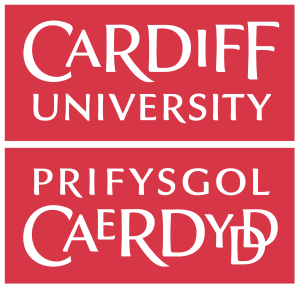


Dr Jo Lello
Co - director
Jo is a Senior Lecturer in the School of Biosciences and her research focuses on the ecology and evolution of infectious disease, particularly, what happens when individual hosts or host populations are infected by more than one parasite at a time (coinfection). She is also interested in how fundamental ecology may help support medical research and practice. To explore these questions, she uses a combination of field and lab based studies coupled with mathematical modelling techniques. Jo started out as a junior medical laboratory scientist in microbiology at Liverpool PHLS, but returned to education undertaking an Applied Biology degree at Liverpool John Moores University. Following her degree she spent several years studying squirrel behaviour and disease before taking up a PhD in December 1999 at Stirling University under the guidance of Prof. Peter Hudson. It was there that her interest in coinfection began while studying the “Community Ecology of Rabbit (Oryctolagus cuniculus) Parasites”. After completion of her PhD in May 2006, she moved to Armidale (NSW, Australia), to take up a position as a Research Scientist in CSIRO Livestock Industries extending her coinfection research to examine the immune mechanisms mediating parasite interspecific interactions in sheep. Finally after three years down-under, she returned to the UK and gained her position as a Lecturer here in Cardiff. Email: LelloJ@cardiff.ac.uk


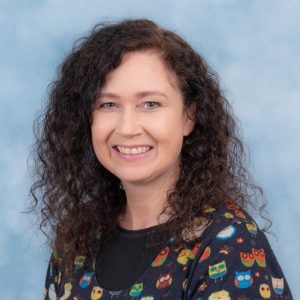
Prof Jo Hamilton
Co - director & Wellbeing Lead
Jo is a Professor of Zoology and Parasitology in the Department of Life Sciences at Aberystwyth University. Her research focuses on the use of proteomic and molecular technologies to explore host- parasite interactions in a wide variety of host-parasite systems including blood-sucking insects and nematodes and trematodes of medical and veterinary importance. Her twenty-five-year passion for parasites and research-led teaching extends to STEM education and outreach through leadership of programmes to increase science capital at all stages of learners' journeys. This ranges from schools' engagement (£8.2M Trio Sci Cymru project and SusNet Wales) to developing the next generation of zoonotic disease scientists (Research Culture and Wellbeing lead of the £7.2 M OneZoo Centre for Doctoral Training). She is the Faculty Associate Dean for Learning, Teaching and Student Experience, Senior Fellow of the Higher Education Academy (Advance HE), Fellow of the Royal Society for Biology and the current President of the British Society for Parasitology. Email: jvh@aber.ac.uk

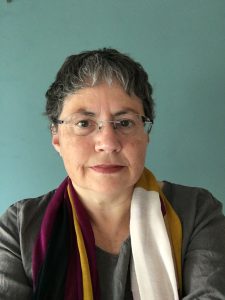
Prof Sian Clarke
Co - director
Sian is a Professor of Epidemiology and her research interest is in infectious disease epidemiology, public health and development in low-income countries. The primary aim of her research is the development and evaluation of disease control strategies to improve health in resource-constrained environments, with a specific focus on malaria. Sian has a particular interest in the epidemiology and control of malaria in school-aged children in sub-Saharan Africa, and the consequences of asymptomatic malaria infection on anaemia, cognition and education. She also has a keen interest in access to medicines and the quality of care, and public health interventions to improve the treatment of malaria and other childhood infections by community health workers, private clinics and drug shops. She has led numerous intervention studies in sub-Saharan Africa, including randomised controlled trials to evaluate the impact of (i) malaria control in schools; (ii) seasonal malaria chemoprevention (SMC) and nutritional interventions in pre-school children; (iii) perennial malaria chemoprevention (PMC) in early childhood; (iv) malaria prevention during pregnancy; (v) use of malaria rapid diagnostic tests (mRDTs) by CHWs and drug shop vendors; and (vi) integrated community case management (iCCM). She has a strong commitment to interdisciplinary research, and the power of bringing insights and methods from multiple disciplines to work together to understand and search for solutions to pressing public health challenges. Sian is the LSHTM Programme Director of the MSc One Health, and LSHTM Co-Director of the OneZoo Centre for Doctoral Training, a multi-university PhD programme to address the environmental drivers of zoonoses. From 2017 to 2021 she was Co-Director of the LSHTM Malaria Centre - a multidisciplinary cross-faculty network of over 200 malaria researchers at LSHTM. Email: sian.clarke@lshtm.ac.uk
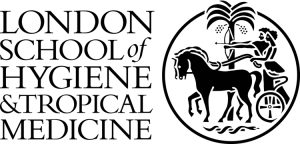


Dr Rob Moon
Co - director
Rob is an associate Professor and runs a research group at LSHTM using molecular biology and parasite genetics tools to study malaria parasites. He primarily works with the malaria parasite Plasmodium knowlesi cultured in human red blood cells, a parasite which infects macaques in SE Asia and is a common cause of malaria in people in this region. Rob undertook his PhD in Molecular Parasitology at Imperial College London and my postdoc working at the Francis Crick Institute (formerly National Institute for Medical Research). During this time he developed new tools and techniques to study rodent malaria parasites and two species of human malaria parasite (P. falciparum and P. knowlesi). His main focus during this work has been addressing mechanisms by which the parasites move into and invade host cells and tissues in both mosquito and human hosts. This has helped to determine the role of proteins involved in cell signalling, molecular motors and host cell recognition and binding. He moved to the LSHTM in 2015 to establish a new group supported by a Medical Research Council Career Development Award and since this time have built on the P. knowlesi research niche to create cutting edge tools for genome-editing, and applied them to study the biology of invasion as well as a host of applied tools for vaccine, drug and diagnostic development. I currently hold two Wellcome Trust Discovery Awards to study P. knowlesi invasion and transmission, as well as being a member of the OptiViVax consortium to develop and optimise multistage vaccines against P. vivax. Email: rob.moon@lshtm.ac.uk



Prof Nikki Marks
Co - director
Nikki is a Professor in the School of Biosciences. Her research focuses on infectious disease and has two main strands; The detection and monitoring of infectious diseases, especially parasitic infections. The work encompasses the monitoring of farm animals for parasitic infections and how this correlates to farm management practices and vector ecology. One area of focus encompasses analysis of changes in the distribution and prevalence of parasitic diseases in farm animals over time and correlating this to treatment regimens / anthelmintic resistance, farm practices and climate change, as well as screening and monitoring the prevalence of key disease vectors and associated pathogens, including ticks and tick-borne diseases. Other key aspects of these studies include monitoring local bee populations for infections and horizon scanning for new and emerging diseases. The second strand involves using new advances in sensor technologies to develop detailed understanding of animal behaviour and to exploit these tools and data to determine infection status to inform disease management and control. Email: N.Marks@qub.ac.uk


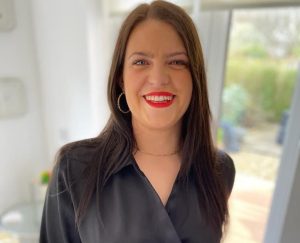
Dr Beth Mansfield
CDT Manager
Prior to this role, Beth gained her PhD in Biomedical sciences from Cardiff University where she discovered a novel mechanism underpinning how our lungs sense and respond to the often polluted world around us and how we can target this mechanism with a new treatment for a range of lung diseases. Alongside her role as the manager of OneZoo, she is an active post-doc in Prof Cable's lab, leveraging her PhD findings to better understand the mechanisms behind environmental drivers of infectious diseases in different ecosystems. Email: MansfieldB@cardiff.ac.uk / OneZoo@cardiff.ac.uk



Dr Elissavet Arapi
CDT Officer
Elis is an Infectious Disease Researcher and more specifically an Aquatic Parasitologist. Elis completed her PhD on “Keeping things under control; Diagnostic tools, control strategies and treatments of aquatic infectious diseases in freshwater fish” in order to promote efficient and effective ways to boost productivity in aquaculture. With aquaculture being the fastest growing, food producing sector being able to provide solutions and minimize losses feels very rewarding. She is currently working for a collaborative, interdisciplinary Centre for Doctoral Training – One Health for One Environment: an A – Z Approach for Tackling Zoonosis (‘OneZoo’), aiming to equip the next generation of world – leading scientists with the skills and insight necessary to tackle current and future zoonotic threats. Alongside providing guidance and support for the OneZoo CDT, as a specialist on infectious disease, she is also conducting research on drivers of and solutions for aquatic infections. Email: arapie@cardiff.ac.uk / OneZoo@cardiff.ac.uk


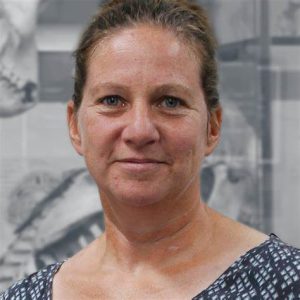
Dr Sarah Perkins
Research in Practice (Student Placements)
Sarah is a Lecturer in the School of Biosciences and her research focuses on a combination of field and laboratory experiments to determine the role of variation in infectious diseases. Sarah studied Environmental Science at Plymouth University after which she worked for the UK Wildlife Trusts as a Conservation Officer. She started her research career several years later with a NERC Fellowship at Aberdeen University studying for a MSc Ecology. After this, she completed her PhD at Stirling University with Prof. Peter Hudson, studying the ecological dynamics of disease with a NERC Fellowship based at the Centro di Ecologia Alpina in the Italian Alps. Her post-doc took her to the Center for Infectious Disease Dynamics (CIDD) at Penn State University. Sarah returned to the UK in 2009 to start a Marie Curie Fellowship at Cardiff University, after completion of which she stayed. Her researched is now focused on the role of individuals in disease persistence and invasion, social networks and infectious disease dynamics, interactions between macrobiota (helminths) and microbiota (bacteria), wildlife diseases and citizen science. Email: PerkinsS@cardiff.ac.uk



Dr Cedric Berger
Training Lead
Cedric is a Senior Lecturer in the Biosciences and his research focuses on several host-bacterial pathogen systems combining a wide range of techniques and approaches from in-vitro cell assays to in vivo models. For almost 20 years, he has been interested in bacterial infection and methods to prevent them. Cedric's PhD project at the University of Paris Sud at the faculty of Pharmacy in France focused on the interaction between Diffusely adherent Escherichia coli and the human epithelial cells. In 2006, he then moved to Imperial College London and developed his expertise on biomedical microbiology focusing on the human pathogens Enteropathogenic and Enterohemorrhagic E. coli and the mouse-restricted pathogen Citrobacter rodentium. In September 2018, he joined Cardiff to carry on his work on pathogenic bacteria. His research is now focused on studying the interaction between enteric pathogens and their hosts with a specific emphasis on Enterohemorrhagic (EHEC), Enteropathogenic (EPEC) Diffusely adherent Escherichia coli (DAEC) and Edwardsiella spp. and covers the biology, immunology and the prevention of enteric diseases. Email: BergerC3@cardiff.ac.uk


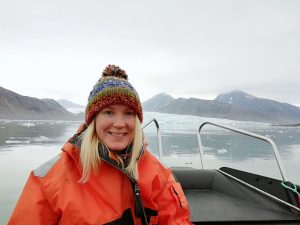
Dr Sophie Watson
Lecturer of the OneZoo CDT
Sophie is a Lecturer at the OneZoo CDT. She has always been interested in a holistic view of ecology and how the small things in this world (even microbes) can be used as early warning systems of significant ecological shifts. These tiny, often ignored species are at the forefront of change and therefore are the most critical components in recognising critical turning points. Earlier in her career her research investigated the gut bacteria and parasites of polar bears (Ursus maritimus) and wolverines (Gulo gulo), exploring how changes in gut communities could be used as indicators of broader ecological change and threatened survival. Now, Sophie applies the same thinking to address how community shifts and environmental factors can instead provide early warnings of water quality risk in drinking supplies and recreational areas. From this, she aims to understand how ecological restoration can reinstate essential feedback loops necessary to maintain sustainable water supplies; a win-win. As such, she is continually interested in research that tackles human, wildlife and environmental health equally, creating solutions that benefit all (i.e. a One Health approach). Sophie's research sits directly on the interface between academia and industry. Chiefly, her work bridges critical knowledge and technology gaps within industry, adapting highly complex methodologies in to standard operation procedures for industry use and facilitating data interpretation. She strongly believes that we as scientists are a community and that the knowledge we gain is there to be shared. Email: WatsonS2@cardiff.ac.uk
